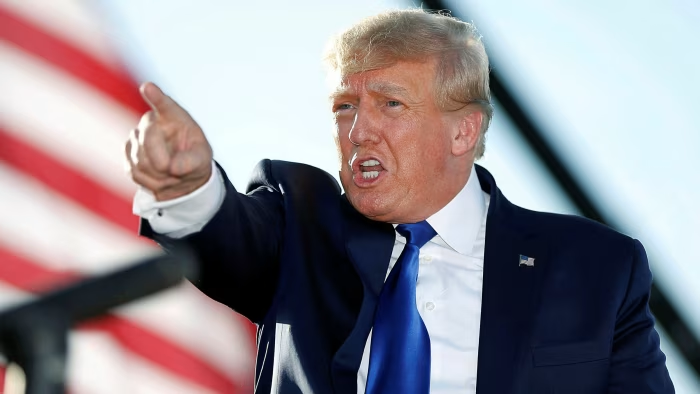MAGA voters are starting to lose faith in Trump

Once the bedrock of his political strength, President Donald Trump’s base is showing signs of weakening. The latest YouGov/Economist poll, taken June 20–23 among 1,590 adults, finds his approval from 2024 voters now at 83 percent approval versus 14 percent disapproval, yielding a net rating of +69—down from +80 last month. The margin of error is ±3.5 points.
This shift follows Trump’s weekend airstrikes on three key Iranian nuclear sites, which sparked Iran’s retaliatory missile launch at a U.S. base in Qatar and heightened volatility despite a ceasefire reached with Israel. The risks of deeper U.S. engagement in the Middle East are now front and center—undermining Trump’s “America First” promise to protect vital interests without getting trapped in “endless wars.” Critics warn these strikes are already chilling support even among Republican voters.
A concurrent Reuters/Ipsos poll (June 21–23, 1,139 respondents) echoes the trend: only 84 percent of Republicans approve of Trump—down from 90 percent last month (margin of error ±3.2 points).
Political analysts point to a widening gap between Trump’s actions and voter priorities. Thomas Gift of UCL told us, “Trump’s recent actions in Iran have done little to reassure the MAGA base that he’ll steer clear of another endless war in the Middle East.” He noted former strategist Steve Bannon’s warning that the strike could escalate to “U.S. boots on the ground,” undermining Trump’s earlier pledge that “America First” meant staying out of foreign conflicts—a promise now sounding hollow.
Peter Loge, a George Washington University professor, adds that the decline reflects broader voter behavior: “He is pursuing policies people don’t like, while ignoring things people care about.” He emphasizes that voters want stability—affordable gas, groceries, medical care—yet Trump’s agenda, from Medicaid cuts to foreign military adventurism, risks disrupting these core concerns. “Voters would rather pay attention to their families,” he observes, than to Trump.
This sentiment is evident: only 29 percent of respondents in the YouGov/Economist poll support U.S. strikes in Iran; 46 percent oppose them. A Washington Post survey found just 25 percent in favor, 45 percent against, and 82 percent expressing concern over full-scale engagement. Pollster G. Elliott Morris reports 21 percent backing U.S. involvement versus 57 percent opposed.
The divide has even reached Congress. Republican Rep. Thomas Massie of Kentucky declared, “This is not our war. Even if it were, Congress must decide such matters according to our Constitution.” Meanwhile, Rep. Marjorie Taylor Greene initially urged caution—“Every time America is on the verge of greatness, we get involved in another foreign war… Peace is the answer.”
But after the strikes, she shifted to expressing support for U.S. troops. Steve Bannon also chastised Trump, questioning the wisdom of praising Netanyahu and alleging intelligence was not sourced from the U.S., saying “very open-ended” remarks were “not the talk that a lot of MAGA wanted to hear.”
Still, polls show that Trump’s core MAGA base is—right now—firmly behind the action, with 65 percent of self-identified MAGA Republicans supporting the strikes (compared to 51 percent of Traditional Republicans).
A Washington Post/George Mason survey reported support jumping from 47 percent to 77 percent among Republicans. Morris notes this is a classic display of party loyalty: “When push comes to shove, partisanship and following the leader override some abstract commitment to staying out of foreign conflicts.”
Aaron Evans, president of Winning Republican Strategies, argues the strikes reinforce Trump’s appeal: “Americans know President Trump did exactly what he promised: he stopped Iran from getting nuclear weapons without dragging us into another endless war.” He says Democrats fear World War III, but Trump projects “peace through strength.” Many supporters see a calculated move rather than reckless aggression.
Yet other indicators suggest cracks in his coalition. The YouGov poll found only 47 percent of Trump’s 2024 voters say the U.S. should take an active global role—37 percent oppose, and 19 percent remain undecided.
Note to readers: This report draws from reputable polling and expert commentary to ensure reliability. Quoted material remains intact to preserve context and factual accuracy.
YouGov stats PDF - https://d3nkl3psvxxpe9.cloudfront.net/documents/econTabReport_uvch8qB.pdf




It doesn’t matter what they think, obviously. He’s in office now.